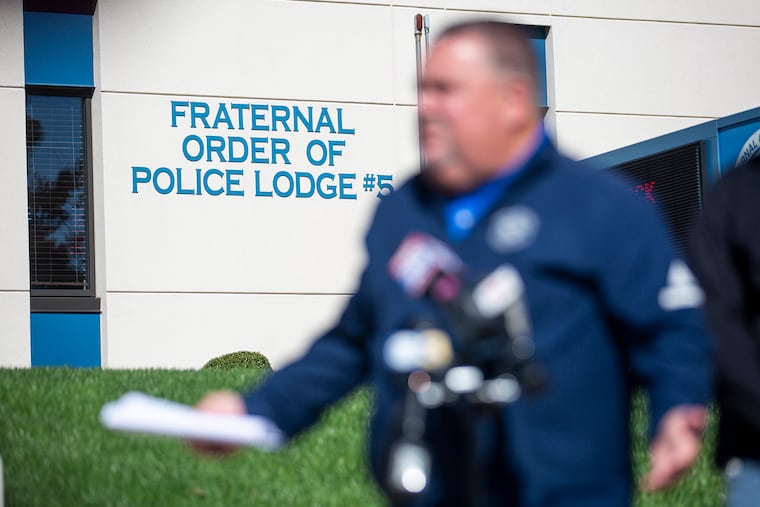Disarm Philly’s police union from the weapon of secret arbitration | Editorial
The future of policing in Philadelphia can’t be solely in the hands of anonymous arbitrators.

After the world saw videos of a New York City police officer holding Eric Garner in a choke hold until his last breath back in 2014, and more recently a Minneapolis police officer kneeling on the neck of George Floyd, it was obvious that these types of restraints have no role in policing. So in September, City Council banned their use.
On the same day, Council also approved a bill requiring public hearings on the city’s contract with the Fraternal Order of the Police. It is this second bill that is part of a larger effort to give teeth to bills like the choke hold ban.
Choke holds were already prohibited as part of the Philadelphia Police Department’s own use of force directive. Now their use is in violation of city law. So what would happen to a police officer who uses such restraint? There is no clear answer.
That is because of the stranglehold that the FOP has over the Police Department through binding arbitration. While the officers technically report to a police commissioner and the mayor, more often than not it is the FOP that holds sway in issues ranging from discipline to officer assignment.
An Inquirer analysis found that between 2011 and 2019, when the FOP fought disciplinary actions brought by the department, arbitrators reduced or overturned the penalties 70% of the time. Aside from being forced to retain officers who don’t belong on the force, the city also paid at least $1.2 million in back pay and $4 million in settlements in these cases.
The source of the union’s power: binding arbitration as codified in a state law called Act 111.
Act 111 is short. All it says, in essence, is that if, in the case of Philadelphia, the FOP and the city don’t agree on every detail in the police contract within a certain timeframe, an arbitration panel resolves the dispute.
The notoriously secretive arbitration process that time and again forces the department to rehire fired officers is not a part of Act 111. That’s in the contract. To change how disciplinary decisions are appealed, either the FOP or an arbitration panel needs to agree to the changes.
Secrecy is a powerful shield for the police and the FOP. Case in point: After Council passed Councilmember Katherine Gilmore Richardson’s bill requiring a public hearing on the police contract, the FOP sued.
While the suit is pending, on Nov. 18, Council hosted its first hearing about the next three-year police contract. (The current contract ends in June after a one-year extension, approved by both sides when the pandemic hit.)
Representatives from the city’s labor department outlined what they hoped to achieve: In addition to restoring residency requirements for new hires, it includes prohibiting arbitrators from reversing disciplinary decisions when misconduct is not disputed, expanding the arbitrator pool, restricting back pay awards, and changes to rules and scope of arbitration.
Getting these changes in the contract will be an uphill climb, because of Act 111. But the transparency about the city’s proposals is refreshing — and a deviation from past negotiations that were wrapped in secrecy.
Even more powerful were the hours of testimony that followed from dozens of residents demanding change. Nothing in the history of the FOP suggests that their leadership would be moved by such outcry. But it is possible that arbitrators will be moved, and recognize that the city’s proposals reflect the will of the people.
The future of policing in Philadelphia can’t be solely in the hands of anonymous arbitrators. Act 111 needs to change.
State Rep. Donna Bullock has been working on amending Act 111. A bill she introduced would limit the secrecy and influence of the contract on the treatment of misconduct. A key element of reform, according to Bullock, is adding a safeguard to the process so that an unelected arbitrator can’t alone have the final word.
In other cities, there is a path for the city council, the mayor, or the court — all entities accountable to the public through elections — to reverse arbitrators’ decisions,
Changing Act 111 will also be an uphill climb. Interests on both sides of the aisle are wary of challenging police or unions. But it is a battle worth fighting. The Philadelphia Police Department should be accountable to the people, and the people’s representatives — not secret arbitrators.